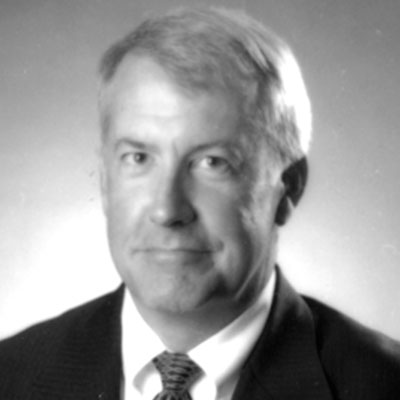Big House on the Prairie
Chicago hasn't had much street credit in technology circles since the Manhattan Project. A few years ago a group of technology companies in and around the city tried to market the region as the Silicon Prairie, but the phrase never quite caught on.
Don't bother telling any of this to Kirkland & Ellis. The Chicago firm tied for first place in IP Worldwide's survey as the firm tapped by the most Fortune 250 companies to handle their IP litigation. Even without doing patent prosecution work (though its lawyers provide IP counseling), the firm placed third among firms chosen by the largest U.S. companies for IP work overall.
"The litigation we do is bet-the-industry litigation," says William Streff, Jr., co-chair of Kirkland's IP department, "Not routine litigation like a cease-and-desist motion." This year, Kirkland brought a $50 million verdict for Honeywell Inc., which sued Hamilton Sunstrand, the aerospace division of United Technologies Corporation for patent infringement. It also won a $3.5 million award in May for Infineon Technologies AG, a division of Siemens. A Richmond federal judge threw out microchip company Rambus Inc.'s patent infringement claims against Infineon. And then a jury found that Rambus had acted fraudulently in not disclosing its applications to an industry standards group its patent applications on the technology.
This year, Kirkland also negotiated a joint venture for client Hitachi Ltd. with Oracle Corporation and Myriad Genetics, Inc.
Kirkland has always had a reputation for its megatrial work. And while the firm has perfected its image as a corporate powerhouse in the heartland, Kirkland is not known in all corners as a bastion of intellectual property work.
"Kirkland is one of the strongest practices --and the least publicized," says Lawrence Watanabe, a legal recruiter at San Diego's Watanabe & Nason.
That practice was built by Streff and his partner Robert Krupka. Krupka's name is intertwined with Kirkland's IP litigation in the same way that David Byrne's is with the Talking Heads.
Krupka became famous within the patent bar when he represented Motorola, Inc., in a 1996 patent infringement trial brought by InterDigital Communications Corporation over wireless technology. InterDigital had already won several multimillion-dollar licensing deals on these patents, but Krupka persuaded the jury that they were invalid. The case was Krupka's first jury trial.
It was also a sign that Kirkland handles patent cases just as it handles all cases -- with brass knuckles and scrappy tactics. Judge Joseph Longobardi reprimanded Krupka and opposing counsel for their aggressive trial tactics, saying that their behavior lacked a "semblance of professionalism."
Krupka may not make judges happy, but juries relate to his plain Midwestern courtroom demeanor. He has gone on to win the three jury trials he's argued since. "They are terrific at telling a story to a jury," says John Bonofrio, general counsel at Honeywell Aerospace.
Krupka and Streff both started at Kirkland on June 4, 1973. They were both fresh out of Chicago law schools -- Krupka from the University of Chicago, and Streff from Northwestern University. At the time, the firm's IP work consisted of patent prosecution and some litigation. Streff and Krupka were trained in both.
But when they took over the practice ten years later, they decided to drop prosecution. They were bringing in more litigation, and the two practices were the source of client conflicts. Kirkland lawyers had to turn down cases because they would find themselves up against in clients for whom they were prosecuting patents.
Plus, litigation was an easier fit with Kirkland's trial-heavy culture. "We decided [trying cases] was more fun," says Krupka, who himself had not yet tried a case to a jury.
NEVER SAY MERGE
When Streff and Krupka joined the firm, they were the fifth and sixth members of the intellectual property practice group. Today, the firm has 175 IP attorneys, most of them home grown. Kirkland has never merged with an IP firm or swallowed up another firm's practice.
"Over the last several years [the intellectual property group] has become one of the driving forces of the firm," says one former Kirkland partner, who says Krupka "escalated [the group] from another level."
Some high-profile intellectual property successes also brought in new clients for the firm. After Kirkland won major patent infringement cases for Minnesota Mining and Manufacturing Company in 1998, for example, the St. Paul, Minnesota -based company turned to the firm for more litigation work.
Clients say they like that Kirkland isn't a boutique. Clients can turn to the lawyers at Kirkland for their knowledge in corporate transactions and general commercial litigation as well.
"Siemens, like many big European and American clients is moving away from the traditional intellectual property firms to big commercial litigation firms. Kirkland is the perfect fit for this," says David Stryker, Siemens AG associate general counsel, himself a former Kirkland partner.
Although it represents AOL Time Warner Inc. on intellectual property matters, Kirkland has largely stayed clear of New Economy clients. Its clients are almost strictly blue chips, like Honeywell, and General Motors Corporation, regardless of industry. It will defend patents for Kraft Foods, Inc., as soon as it will for Hitachi.
With clients like that, who needs the Silicon Prairie?
Read more American Lawyer Media news on the Web on law.com
This article is reprinted with permission from the July 2001 edition of IP Worldwide. c 2001 NLP IP Company

